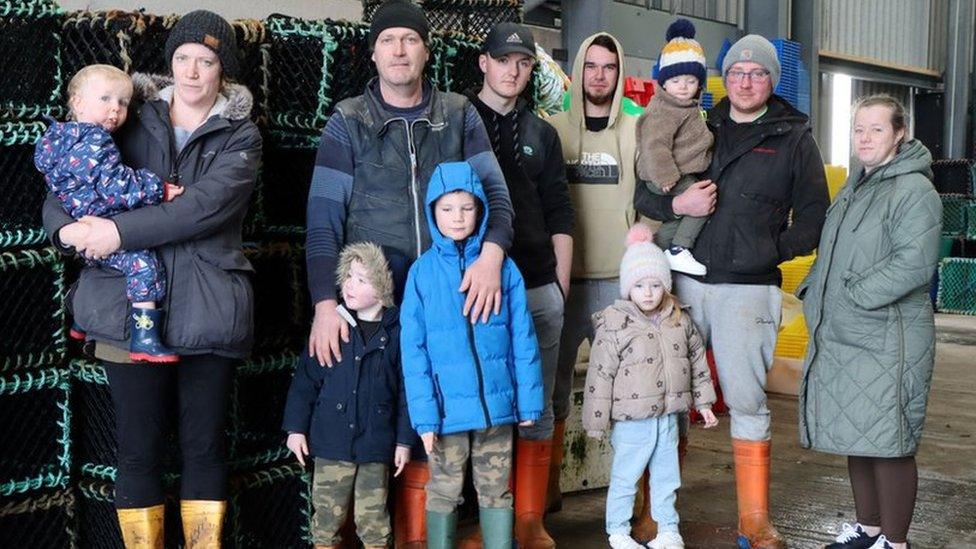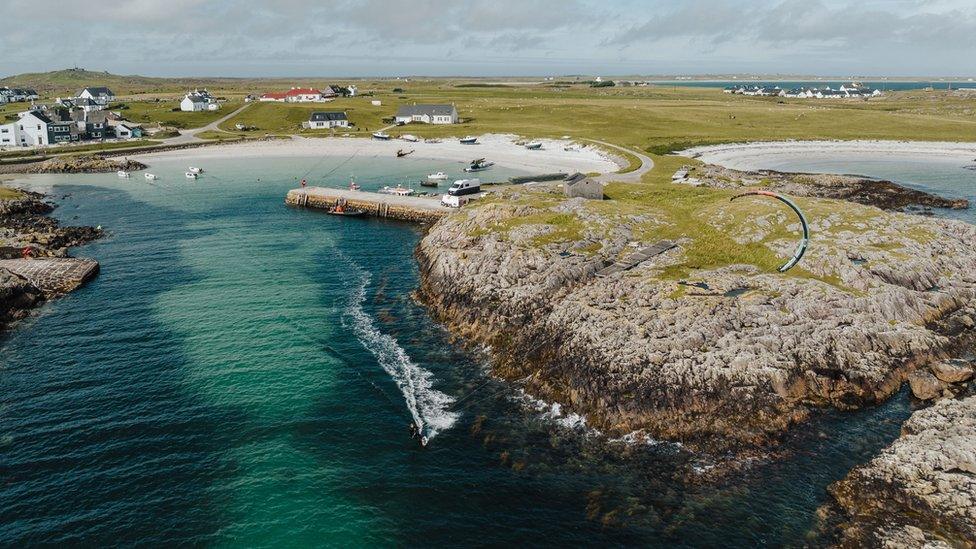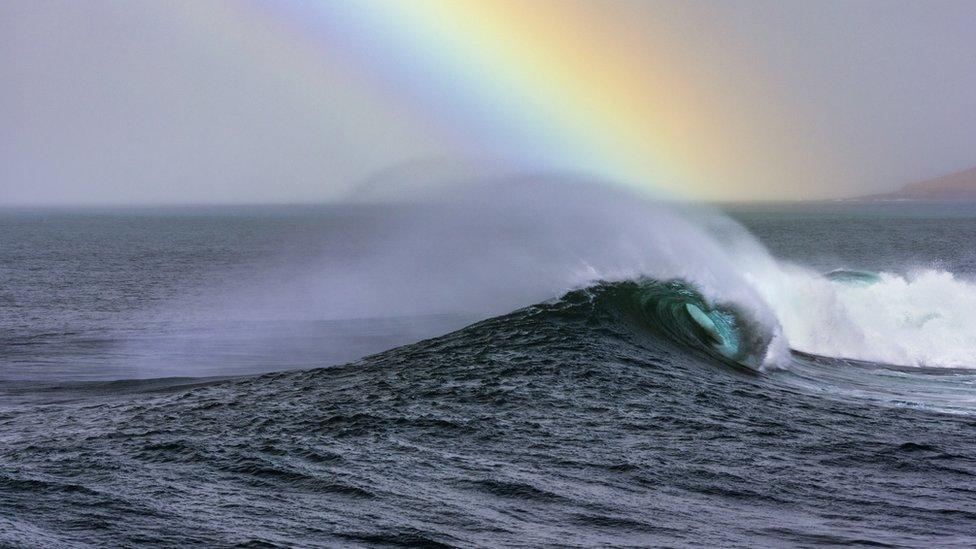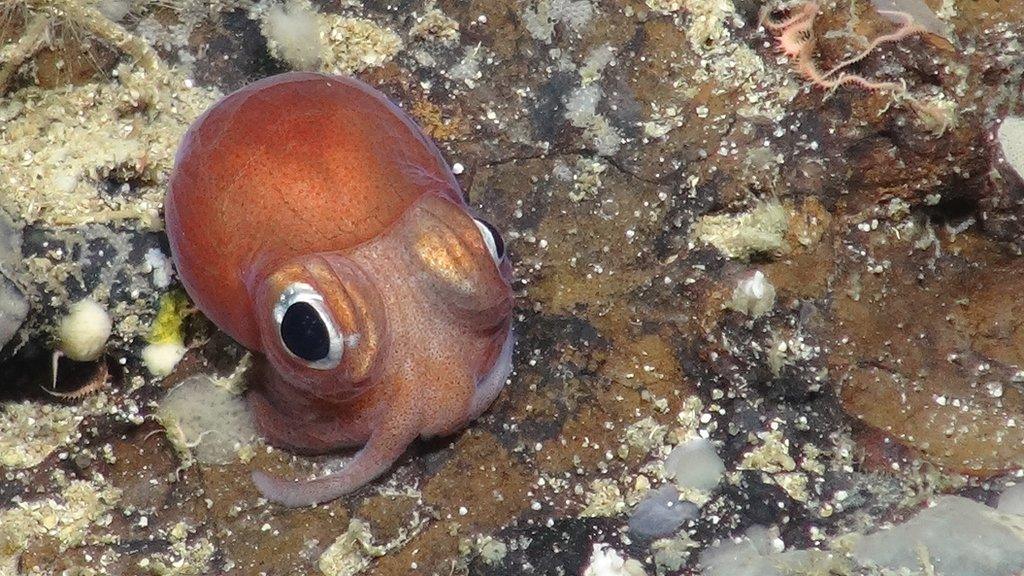Island families oppose marine protection areas around Tiree
- Published

Islanders in Tiree have said proposed new marine protection measures would wipe out the local fishing industry.
The Scottish government has committed to designating at least 10% of Scotland's seas as Highly Protected Marine Areas (HPMAs).
Fishing would be banned in the zones as part of efforts to protect important habitats from human activity.
Tiree Community Council and Tiree Community Development Trust said HPMAs posed an "existential threat".
Scotland already has a network of marine protected areas covering about 37% of its seas.
The Scottish government said it was in the early stages of consulting on the proposals, external, and would work closely with communities and the fishing industry on the new policy.
Tiree's community council and development trust said fishing supported nine boats and 20 full-time jobs. The annual catch of crab and lobster is worth about £1m.
The island in the Inner Hebrides suffers from depopulation and is home to about 653 people. The 2011 Census recorded a 15% decline in residents over the previous 10 years.
Local fisherman Neil MacPhail said losing even one boat would have a huge impact on the community.
He said: "My boat alone puts food on the table for 11 people.
"If this (HPMAs) is landed on top of us, we would be wiped out overnight with one stroke of the pen on a chart."
Rhoda Meek, chairwoman of Tiree Community Development Trust, said the island was "perilously close to being non-viable".
She said: "Social capital has been hollowed out and many voluntary committees are under strength. The Tiree community is hanging on by its fingertips.
"If the Tiree fleet cannot work local waters, there will be no fishing boats, no fishermen, and no fishing families. It will be the end of our community."

The community in Tiree is the latest to oppose HPMAs
Western Isles local authority - Comhairle nan Eilean Siar - voiced its opposition to HMPAs last week.
Highland Council has this week urged its coastal communities to respond to the consultation.
Economy committee chairman Ken Gowans said: "This may have implications for local businesses and communities, especially those who rely on making a living from fishing, aquaculture, and marine tourism activities.
"Now is the time to raise concerns and make your views known. Highland Council intends to provide a response to this consultation, and I would encourage all other interested parties to do so too."
The Scottish Islands Federation, whose members include Arran Community Council and Mull and Iona Community Trust, has produced a draft response. It opposes bans on fishing.
Under the planned HPMAs, all forms of fishing, including recreational catch and release angling, would be prohibited.
Seaweed harvesting would also be banned, no new marine renewable energy schemes would be allowed and their would be restrictions around the laying of subsea cables.
Managed levels of swimming, snorkelling and windsurfing would be allowed.
The Scottish government said it wanted island communities to thrive and be able to benefit from their huge natural assets, and it was still in the early stages of consulting on HPMAs.
A spokesman said: "We recognise the need to support their sustainable future.
"That is why we are proposing that essential lifeline services such as communications, transport and energy infrastructure for our island communities should not be impacted by the creation of Highly Protected Marine Areas.
"However, improving marine protection, a necessity in a climate and nature emergency, allows key species and habitats to restore and recover, benefiting both nature and our economy by making sure there are sustainable levels of fish and other marine products to be derived and benefitted from our seas."
The deadline for responses to the consultation is 17 April.
- Published10 March 2023

- Published9 October 2020
